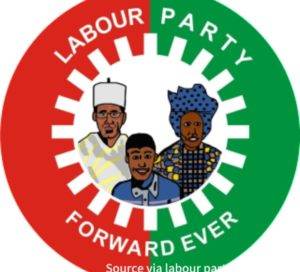The Labour Party (LP) has asserted its ability to secure victory in the 2027 presidential election without forming any coalition. This confidence stems from the party’s strong grassroots appeal and the support it garnered during the 2023 elections. Speaking in an interview with The opitanglobamedia on Sunday, the party’s National Publicity Secretary, Obiora Ifoh, dismissed rumours of ongoing coalition talks with other opposition parties like the New Nigeria People’s Party (NNPP) and the Peoples Democratic Party (PDP).
Labour Party’s Confidence in Independent Victory
Ifoh underscored the Labour Party’s independent strength, pointing to the party’s performance in the 2023 general elections as evidence of its growing influence. He highlighted how the LP captured millions of votes despite being a relatively new force in Nigerian politics, reflecting the public’s dissatisfaction with the ruling All Progressives Congress (APC).
“We didn’t need any coalition in 2023 to secure significant support from Nigerians who believed in our vision for the nation,” Ifoh remarked. “If elections were held again today, we would perform even better, considering the failures of the current administration. Labour Party stands for the change that Nigerians need, and we are ready to deliver.”
According to Ifoh, the LP remains committed to its vision and confident in its ability to win elections at all levels without relying on external alliances.
Open to Coalitions Under the Right Circumstances
While dismissing current coalition rumours, Ifoh left the door open to potential mergers if the terms align with the Labour Party’s principles and objectives. He clarified that the party has not received any formal invitation to discuss coalitions but remains willing to evaluate such proposals in the future.
“The idea of a coalition is not off the table,” Ifoh explained. “If approached, the Labour Party will carefully assess the merits and demerits. However, so far, opposition parties have not initiated any meaningful discussions in this regard.”
The LP’s stance comes amid speculation about a potential coalition involving the PDP, NNPP, and LP to unseat the APC in 2027. However, these rumours were recently denied by key figures, including NNPP leader Rabiu Kwankwaso and LP’s Peter Obi, who distanced themselves from any such discussions.
Kwankwaso and Obi Deny Coalition Talks
In separate statements, both Kwankwaso and Obi categorically denied involvement in any coalition talks. Kwankwaso, speaking to BBC Hausa, revealed, “I have not communicated with either Atiku or Obi,” emphasizing his neutral stance. Similarly, Peter Obi clarified during a press conference, “I am not part of any arrangement for a coalition.”
These denials have further fueled debates about the feasibility of a united opposition front against the APC in 2027. Despite the speculations, the Labour Party has reiterated its readiness to stand independently and focus on consolidating its growing support base.
PDP’s Call for a Unified Opposition
Reacting to the coalition speculations, PDP’s acting National Chairman, Umar Damagum, argued that defeating the APC in 2027 would require a merger involving the PDP. Damagum asserted that the PDP remains a dominant political force with a track record of electoral victories, even when not in power.
“The PDP has consistently won elections without alliances or mergers. While Kwankwaso may have left, the NNPP’s influence remains limited compared to the PDP’s national presence,” Damagum said. “Without the PDP, no coalition can successfully challenge the APC.”
As the 2027 elections approach, the debate over coalition strategies among opposition parties highlights the challenges of building a unified front. For now, the Labour Party remains confident in its ability to stand alone, leveraging its grassroots appeal to challenge the ruling APC.
Future Political Landscape
The current political climate suggests a complex path ahead for opposition parties as they position themselves for the 2027 presidential election. While the Labour Party projects confidence in its independent capabilities, the broader opposition landscape remains fluid with various parties weighing their strategic options.
The Labour Party’s stance reflects a growing trend of political self-assurance among newer political forces in Nigeria, while traditional parties like the PDP maintain their claims to relevance. This dynamic sets the stage for an intriguing period of political maneuvering as parties begin early preparations for the 2027 electoral contest.
Table of Contents
Discover more from OGM News NG
Subscribe to get the latest posts sent to your email.














